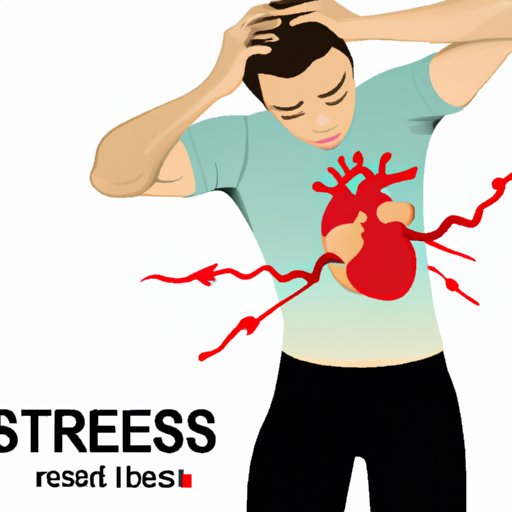
The Heart of the Matter: How Stress Affects Your Cardiovascular System
Stress is an unavoidable part of life, but it can have serious negative effects on your health if left unchecked. One of the most significant areas where stress has an impact is on your cardiovascular system, and understanding how stress affects your heart health is essential to maintaining a long and healthy life.
The Silent Killer: How Stress Takes a Toll on Your Heart
Stress is a physiological response to demanding situations, both physical and emotional. When you experience stress, your body releases a cascade of hormones and chemicals intended to prepare you for action. However, these responses, if prolonged or chronically activated, can cause serious damage to your cardiovascular system.
In fact, research has found that stress is a significant risk factor for heart disease, the leading cause of death for men and women worldwide. Stress can lead to a range of cardiovascular problems, from high blood pressure and coronary artery disease to heart attacks and strokes.
When Stress Gets Under Your Skin: Understanding the Connection Between Stress and Cardiovascular Risks
The physiological effects of stress are complex and can vary depending on the individual and the specific stressor involved. However, one of the most significant mechanisms through which stress harms the cardiovascular system is through inflammation and vascular damage. When the body experiences stress, it releases hormones like cortisol, which can trigger inflammation and damage to the walls of blood vessels.
Over time, this damage can lead to the development of a range of cardiovascular risk factors, including high blood pressure, high cholesterol, and obesity. Additionally, stress can impair the body’s ability to regulate blood sugar, which can increase the risk of diabetes and related complications.
The Anatomy of Stress and Its Negative Impact on Your Heart Health
Different types of stress can harm your cardiovascular system in different ways, but all have the potential to contribute to heart problems. For example, acute stressors, such as a traumatic event or sudden loss, can trigger cardiovascular events like heart attacks and arrhythmias. Chronic stressors, such as job strain, financial problems, or family conflicts, can have a long-term impact on heart health and increase the risk of heart disease.

Surviving Stress: The Cardiovascular Risks and Coping Strategies
Mitigating the stress in your life can significantly reduce the risk of cardiovascular problems. Lifestyle changes such as regular exercise, healthy eating habits, and consistent sleep schedules are all effective ways to help mitigate the effects of stress on the heart. Additionally, cultivating relaxation techniques such as meditation, deep breathing, and visualization can reduce stress levels and promote emotional wellbeing.
Other approaches, such as cognitive-behavioral therapy or stress-management courses, can be effective for those dealing with high levels of chronic stress. These types of programs provide tools and resources for building resilience, managing stress, and reducing the associated risks to heart health.
Exploring the Link Between Mental Health and Heart Health: The Role of Stress
Mental health issues like depression, anxiety, and PTSD are also risk factors for heart disease, and treating these conditions is important in protecting heart health. Individuals struggling with mental health should seek professional help and resources like online therapy sessions, support groups, and practitioner referrals.
Stress and Your Heart: Understanding the Physiology and Preventive Measures
To reduce the risk of cardiovascular problems associated with stress, it’s important to be proactive in preventing these effects. This includes keeping tabs on relevant biometric markers such as blood pressure and cholesterol levels, avoiding smoking and alcohol consumption, reducing sedentary behavior, and regular health checkups.
From Head to Heart: How Stress Affects Your Body and What You Can Do About It
The effects of stress on heart health are significant and pervasive, but there are a range of preventive measures and coping strategies you can use to protect yourself. It’s essential to take an honest inventory of your stress levels and heart health risks and to seek out the support and resources you need to reduce stress, protect your cardiovascular health, and live a fulfilling, happy life.
Conclusion
The connection between stress and cardiovascular health is clear and cannot be ignored. Understanding the impact of stress on the cardiovascular system and the ways to mitigate its negative effects is fundamental to protecting heart health. It’s important to prioritize your heart health, and remember that stress management isn’t just for the mind– it’s essential to your physical wellbeing as well.





